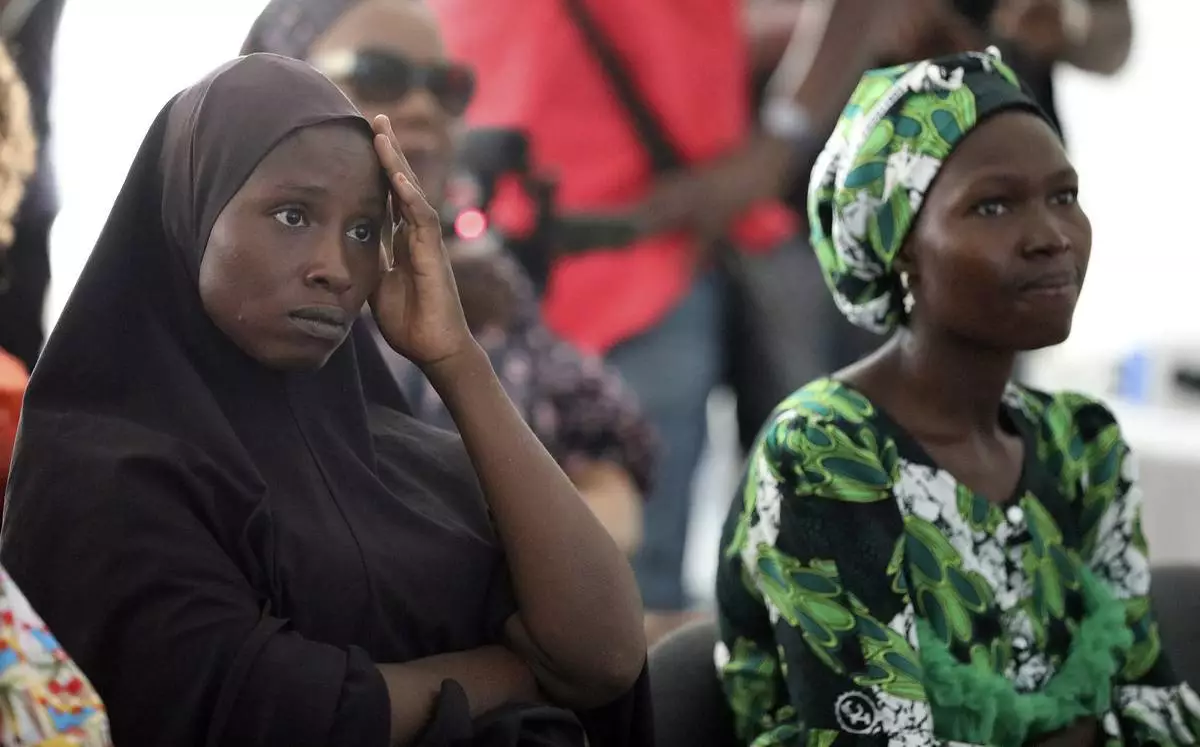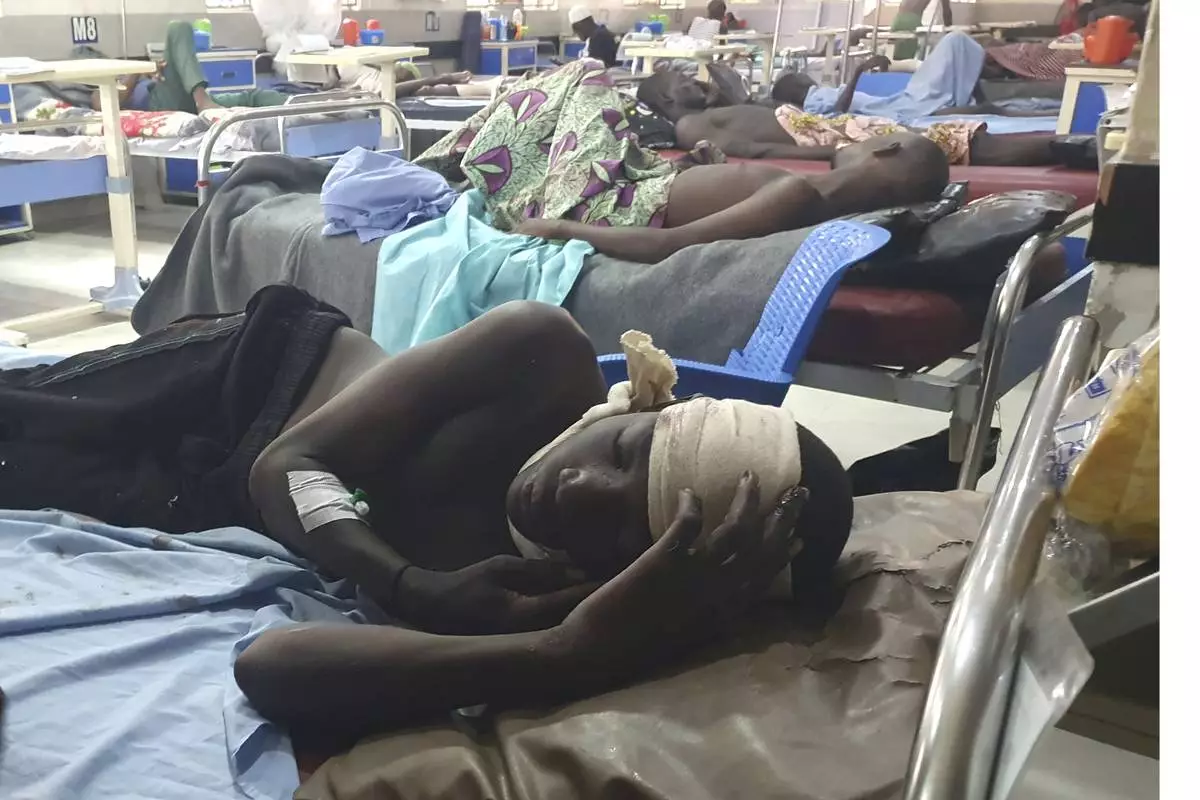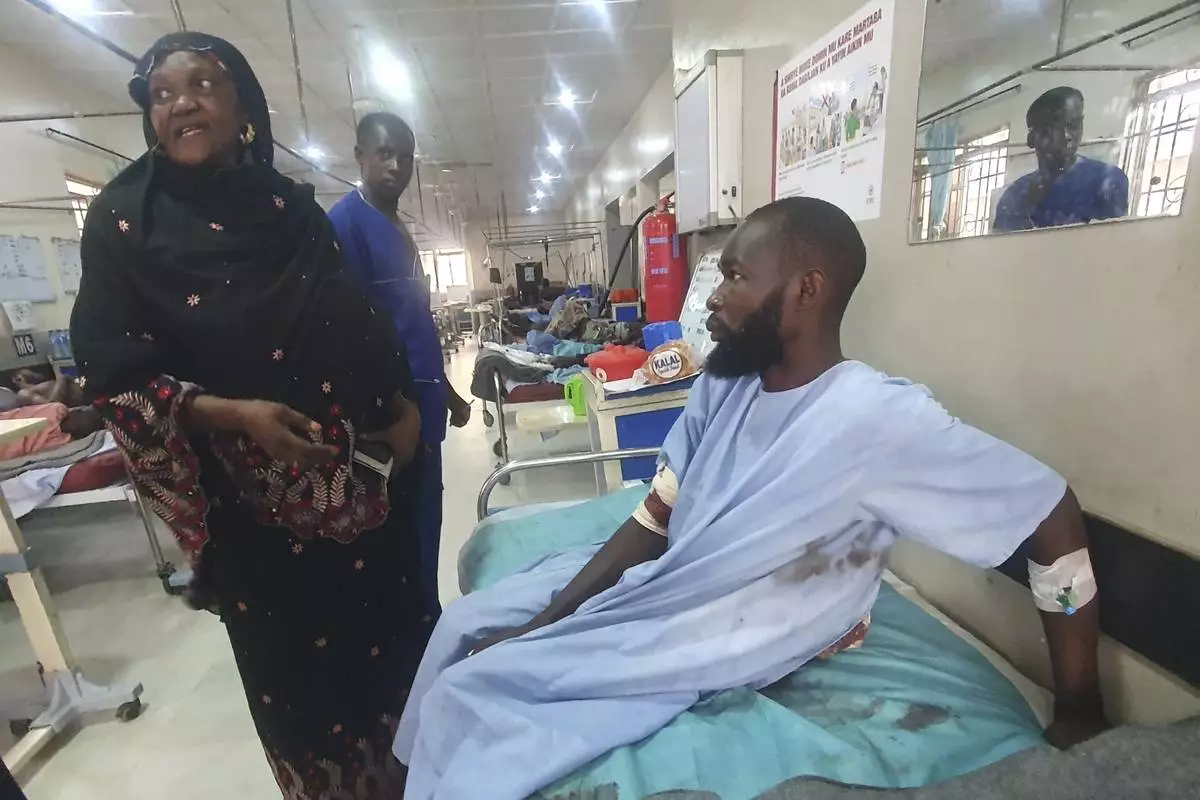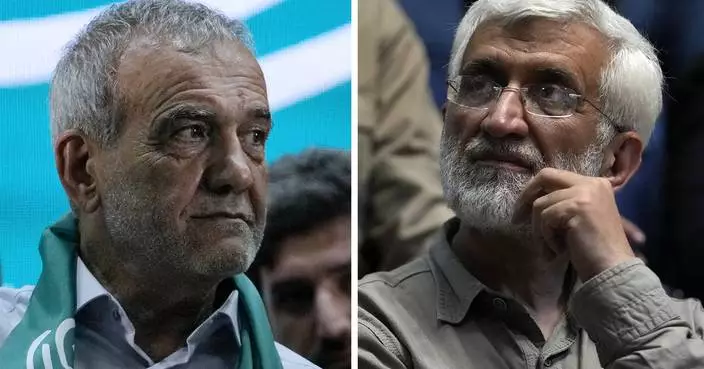WASHINGTON (AP) — President Joe Biden's disastrous debate performance has reverberated across the Democratic Party, forcing lawmakers to grapple with a crisis that could upend the presidential election and change the course of American history.
The Democratic president has vowed to stay in the race against Republican Donald Trump despite the halting and uneven debate delivery that threw a spotlight on questions about Biden's age and capacity to be president. But as Democrats make the case that the stakes of the election are momentous — challenging no less than the foundations of American democracy — they're wrestling with what to do about the 81-year-old who's supposed to be leading the charge for their party.
Here's how Democrats are handling the debate aftermath:
Prominent congressional Democrats have moved in recent days to open concern not just over Biden’s performance during the 90-minute debate last week but also the level of transparency his team has shown about his mental fitness. They’ve tiptoed toward embracing the idea Biden should withdraw.
One Biden ally, Rep. James Clyburn, on CNN Wednesday openly discussed holding a “mini-primary” in the run-up to the Democratic National Convention in mid-August.
After the debate last week, Clyburn, who is 83 years old, had initially urged fellow Democrats to “stay the course” with Biden and “chill out,” but by Wednesday his tone had changed.
“I saw what I saw last Thursday night, and it is concerning,” Clyburn said.
In recent days, comments from Clyburn and other senior Democrats including former House Speaker Nancy Pelosi have provided signposts for a political party in crisis. Still, it was not clear whether their concerns were reaching Biden, who told aides on a Democratic National Committee call that “no one is pushing me out.”
Clyburn, a senior South Carolina lawmaker who is a former top party leader in the House, also had a lengthy call with Biden on Wednesday.
Pelosi, in an interview Tuesday on MSNBC, still emphasized that the president is on “top of his game, in terms of knowing the issues and what is at stake.”
But she also called on both Biden and Trump, who’s 78, to face tests for their health and mental acuity.
“I think it is a legitimate question to say is this an episode or is this a condition. So when people ask that question, it’s legitimate — of both candidates,” said Pelosi, D-Calif., who’s 84.
Minutes after Pelosi's comments on Tuesday, Rep. Lloyd Doggett, of Texas, became the first sitting Democrat in Congress to call for Biden to withdraw from the race.
“Recognizing that, unlike Trump, President Biden’s first commitment has always been to our country, not himself, I am hopeful that he will make the painful and difficult decision to withdraw. I respectfully call on him to do so,” said Doggett, who's 77.
Pelosi also nudged Biden to prove to the American people that he’s ready for another four years in office by going out and taking tough interviews — something he has rarely done in recent years. Biden will sit for an interview with ABC, his first since the debate, later in the week.
“Everybody is asking one question within the Democratic Party ... which is how do we defeat Donald Trump and how are we going to defeat the threat of authoritarianism,” Rep. Jamie Raskin, a prominent Democrat from Maryland, said on MSNBC late Tuesday.
Lawmakers are also concerned Biden’s weaknesses could tamp down potential voters’ enthusiasm, creating a ripple effect that hurts Democrats as they try to maintain a narrow Senate majority and take back control of the House. Down-ballot Democrats are already confident they can outperform Biden in swing races, but if large numbers of voters reject Biden, it could impact them.
While several vulnerable Democrats have stopped short of calling for Biden to withdraw, they've also cast the situation in stark terms: If Biden continues, Trump will win.
“The truth, I think, is that Biden is going to lose to Trump,” Rep. Marie Gluesenkamp Perez, a Washington Democrat, told an ABC-affiliated television station. "I know that's difficult, but I think the damage has been done by that debate."
With Biden’s family urging him to stay in the race, attention has turned to senior Democratic lawmakers who could potentially persuade the president to withdraw his nomination. So far, top Democratic leaders have mostly stood behind Biden in public statements.
“There have not been discussions among senior leadership about anything other than making sure we continue to articulate a compelling vision for the future to the American people related to the issues of importance around the economy,” House Democratic leader Hakeem Jeffries told reporters Monday in Pittsburgh.
Senate Majority Leader Chuck Schumer, a New York Democrat, posted on X, the platform formerly known as Twitter, after the debate that it showed voters there was a choice between “four more years of progress, or four more years of attacks on our fundamental rights and our democracy.”
After days of no direct talk between Biden and congressional leaders, the president late Tuesday and Wednesday held calls with Schumer and Jeffries, as well as Sen. Chris Coons, a Delaware Democrat who's a close ally to the president, according to people briefed on the calls who insisted on anonymity to discuss them.
Many of Biden's allies have chided the news media for being fixated on Biden's mental capacities, arguing that instead the focus should be put on Trump's record of refusing to accept the results of the 2020 election he lost to Biden and repeatedly lying.
Rep. Veronica Escobar, a Texas Democrat who's part of Biden's campaign committee, conceded on Friday the debate wasn't what she hoped for but added, “I think there needs to be a real conversation about the things that Donald Trump said. It is beyond vile.”
The June 27 debate infused a new dynamic into an election contest that had been marked by few surprises. Voters were familiar with Biden and Trump and had previously decided between the two in 2020.
Still, many House Democrats were caught in a state of uncertainty as they faced a barrage of questions on the morning after the debate. Some chalked it up as little more than a bad night for Biden, but others are watching closely to see how voters react and whether Biden can execute a quick political recovery.
Already, vulnerable House Democrats have been distancing themselves from some of Biden’s policies in recent months. That phenomenon became more pronounced after the debate.
Rep. Jared Golden, a moderate Democrat from Maine, argued the outcome of the election was a foregone conclusion.
“While I don’t plan to vote for him, Donald Trump is going to win,” Golden said in a Bangor Daily News op-ed. "And I’m OK with that.”
Associated Press writers Farnoush Amiri and Lisa Mascaro contributed to this report.

FILE - Rep. Jim Clyburn, D-S.C., speaks, Nov. 18, 2023, in Charleston, S.C. Senior Democratic figures rallied with a show of unwavering public support for President Joe Biden on Sunday, June 30, 2024, amid private angst within the party about his Thursday debate performance. "I do not believe that Joe Biden has a problem leading for the next four years," Clyburn, a close ally of Biden, said on CNN's "State of the Union." "Joe Biden should continue to run on his record." (AP Photo/Meg Kinnard, File)
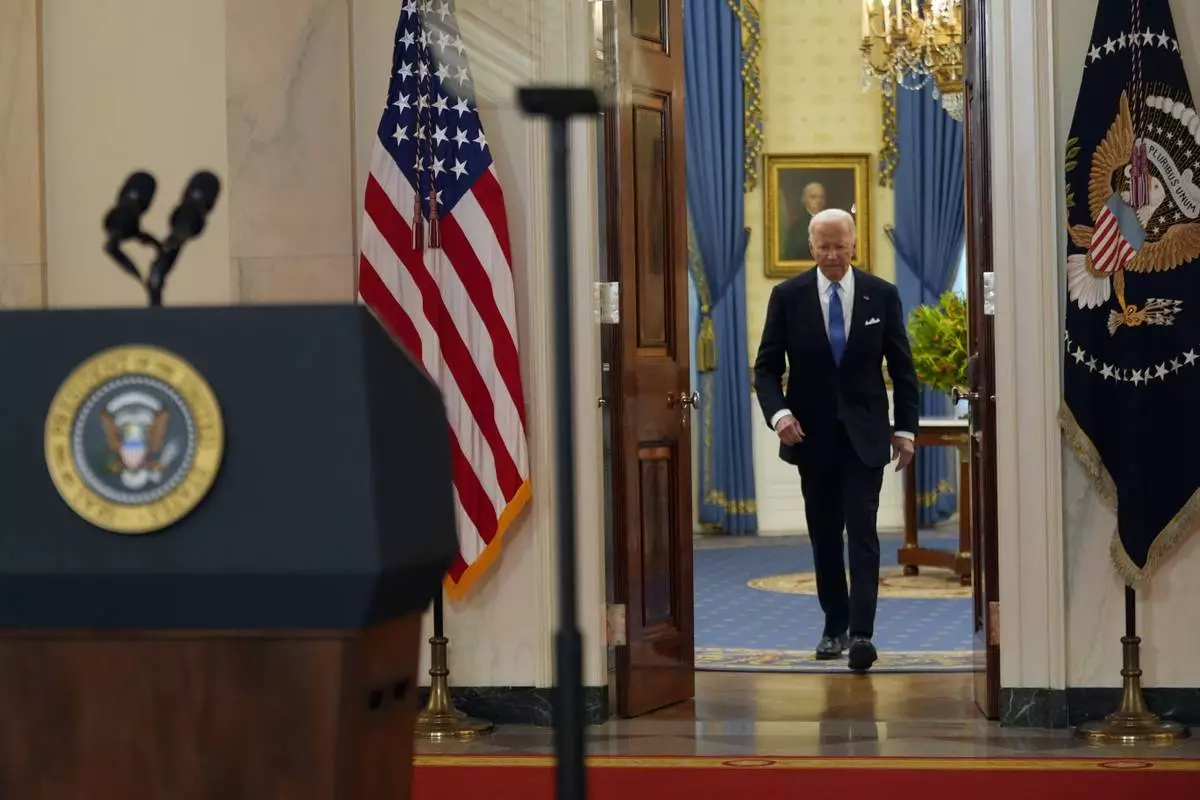
President Joe Biden arrives to speak in the Cross Hall of the White House Monday, July 1, 2024, in Washington. (AP Photo/Jacquelyn Martin)
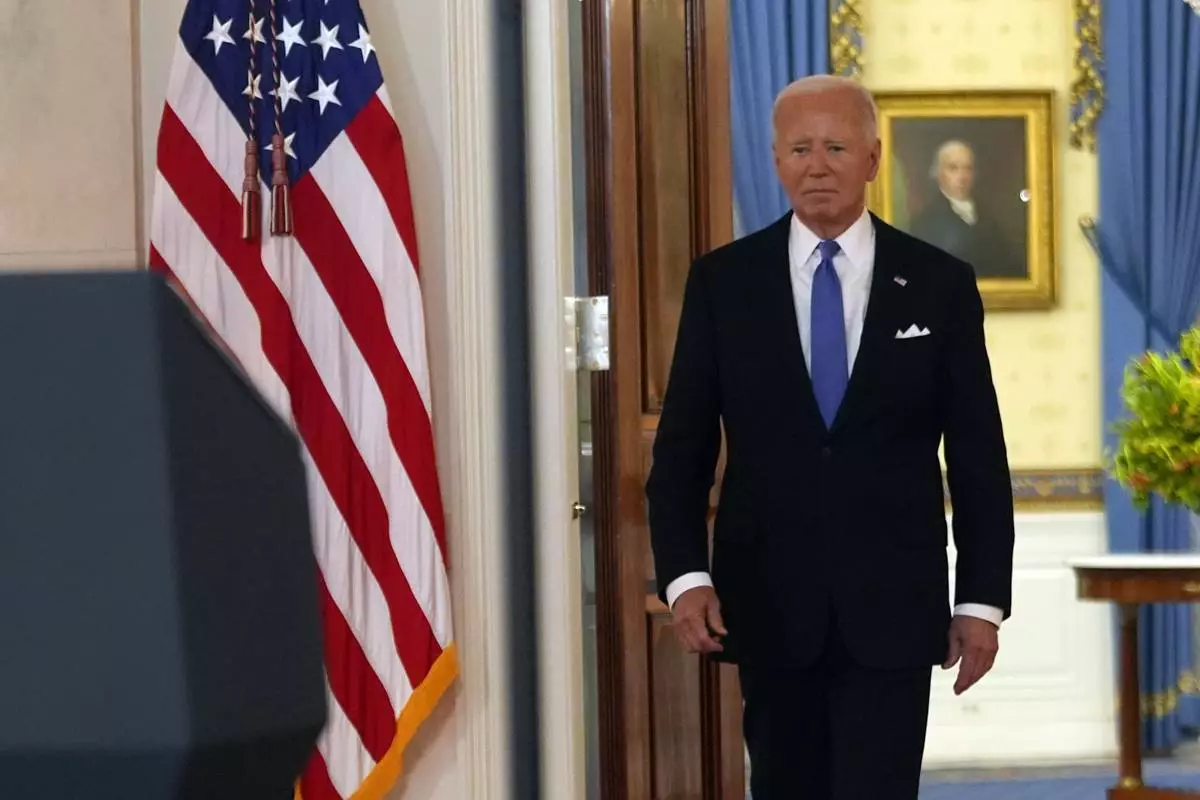
President Joe Biden arrives to speak in the Cross Hall of the White House Monday, July 1, 2024, in Washington. (AP Photo/Jacquelyn Martin)



